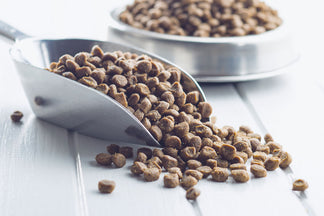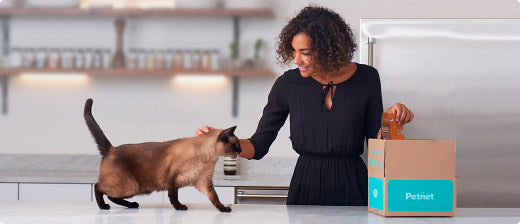We now move to the letter “L” in our ingredient A to Z series and are featuring L-Carnitine as our ingredient of the day.
What is L-Carnitine?
L-Carnitine is an amino acid that is naturally produced in the body. It is required for the transport of fatty acids into the mitochondria during the breakdown of lipids (fats) for the generation of metabolic energy. Animal products like meat (especially red meat), fish, poultry, and milk are the best sources of L-Carnitine.
Common names for L-Carnitine
The most common name variations for L-Carnitine are Carnitine, L-Tartrate, Vitacarn, and Vitamin B(t)
Why is L-Carnitine included in pet food?
L-Carnitine provides many health benefits. It acts as an antioxidant and also supports a healthy heart. It is often added to pet food because its availability in food ingredients is degraded during the cooking and overall processing of the food products.
Common benefits or risks of L-Carnitine
Benefits: There are many benefits of L-Carnitine. As mentioned, L-Carnitine plays a critical role in energy production. It transports long-chain fatty acids into the mitochondria to produce energy. The heart obtains 70–80 percent of its energy from fat breakdown and L-Carnitine’s role in energy metabolism of fatty acids makes it a key component in maintaining cardiovascular health.
L-Carnitine acts as an antioxidant helping to fight free-radicals and keep internal inflammation down.
A study conducted in 2012 at Cornell University’s College of Veterinary Medicine suggests cats on weight loss programs can benefit from L-Carnitine supplementation due to its impact on the cats metabolism.
Risks: At high doses (3 grams per day), carnitine supplements can cause nausea, vomiting, abdominal cramps, and diarrhea.
Miscellaneous facts about L-Carnitine
- L-Carnitine’s name is derived from the Latin carnus or flesh, as the compound was isolated from meat.
- L-Carnitine is often sold as a human supplement to increase athletic performance, although research evidence suggests that there is no associated benefit.
- Carnitine can be found at significantly lower levels in many other foods including nuts and seeds (e.g. pumpkin, sunflower, sesame), legumes (e.g. beans, peas, lentils, peanuts), vegetables (e.g. artichokes, asparagus, beet greens, broccoli, brussels sprouts, kale), and fruits (e.g. apricots, bananas)
Sources and further reading
http://umm.edu/health/medical/altmed/supplement/carnitine-lcarnitine
http://ods.od.nih.gov/factsheets/Carnitine-HealthProfessional/
http://www.ncbi.nlm.nih.gov/pubmed/12378044
http://healthypets.mercola.com/sites/healthypets/archive/2013/06/12/l-carnitine-benefits.aspx



 Food
Food
 Food
Food
 Food
Food
